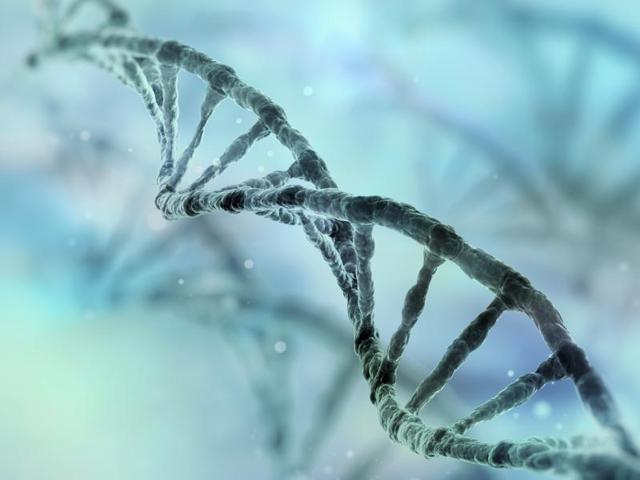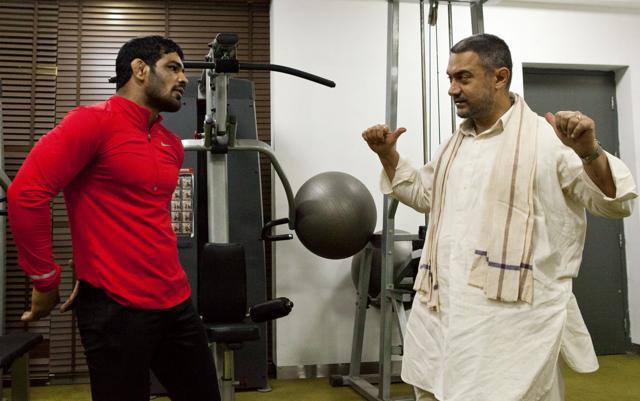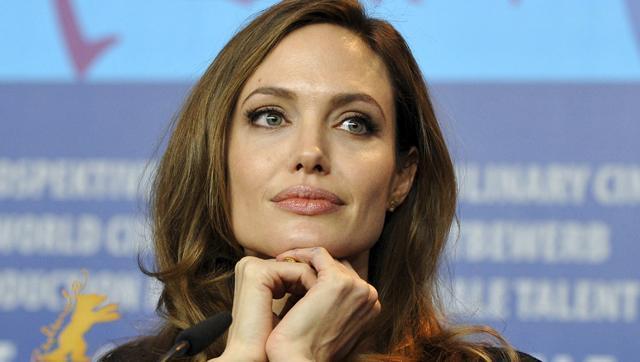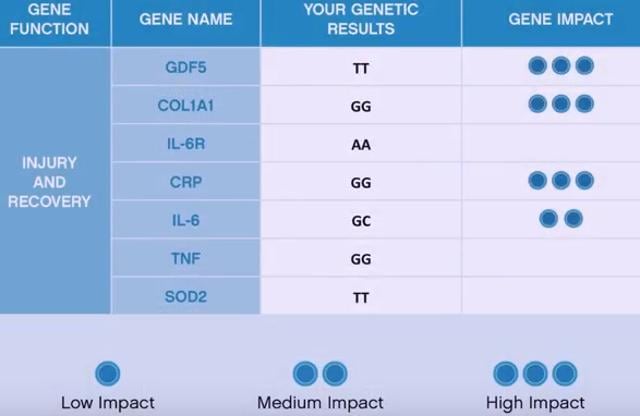Here’s why you should opt for a diet chart custom-made to suit your DNA
From Aamir Khan and Angelina Jolie to Olympians Sushil Kumar and Greg Rutherford — several personalities have benefited from nutrigenomics. Experts tell us more about this branch of science
While preparing for his upcoming film Dangal, in which he plays a wrestler, Aamir Khan wanted to know how wrestler Sushil Kumar — who bagged a bronze medal at the 2008 Beijing Olympics and a silver at the 2012 London Olympics — trains. That’s when he found out that Sushil had opted for a diet programme that was suited specifically for his genes.


“Aamir learnt that I had worked with Sushil. He asked me to share inputs on how to get the physique of a wrestler. We conducted a DNA test for him and prescribed him a diet plan. If he was not an actor, Aamir would have made for a great athlete, given his genetic structure,” says Ryan Fernando, co-founder of Qua Nutrition, a Bangalore-based sports nutrition clinic.
Read more: How about owning a bag made of fashion designer Alexander McQueen’s DNA?
A similar process was followed by British track and field athlete Greg Rutherford, who competed at the Rio Olympics. Shah Fahad Husami, the founder Adam’s Genetics, a Gurgaon-based biotechnology start-up, says they prepared a diet plan for Rutherford that was based on an algorithm. “He has won the bronze medal in long jump. We are proud that we could contribute to his victory in some way,” says Husami.

Several fitness enthusiasts nowadays opt for diet charts that are tailor-made to suit their genes. What helps in this area is nutrigenomics — the study of how nutrients in our food act at a molecular level. Kanchan Patwardhan, nutritionist, Kanchan’s House of Health and Nutritiont, explains, “The best part about nutrigenomics is that it prevents one from contracting any disease suddenly. It also mentally prepares you for all the possible outcomes in the future.”

This is precisely what happened with Hollywoood actor Angelina Jolie. She discovered, through a DNA test, that she is susceptible to hereditary breast cancer, and, therefore, opted for a double mastectomy. In India, nutrigenomics is still at a developing stage. So, to get the best accuracy in test results, most firms collaborate with labs in developed countries.
Read more: Can your genes predict your future?
“Clinical Laboratory Improvement Amendments (CLIA) certification is the gold standard when it comes to genetic or molecular testing. We ensure our test results come with that stamp of approval,” says Husami.
Benefits of genetic testing
A study conducted by University of Toronto researchers — Daiva E Nielsen and Ahmed El-Sohemy — suggested that “dietary modification is an important health behaviour for chronic disease prevention”. The study also stated that “results provide evidence that genetic testing for personalised nutrition may be more clinically useful for motivating favourable dietary changes than testing for disease susceptibility”.
Some other studies on DNA-based diet plans also established that those on a personalised diet had:
1. Greater dietary adherence
2. Long-term maintenance of weight
3. Greater improvements in fasting blood glucose levels

Pranav Anam, a geneticist and the co-founder of The Gene Box, a Mumbai-based holistic health platform, lists the following benefits of genetic testing:
1. It helps you discover genetic-based intolerances such as gluten and lactose intolerances
2. It finds out the root cause behind nutritional deficiencies — whether they are genetic or lifestyle related. For example, vegetarians usually have a vitamin B12 deficiency. But when a non-vegetarian has this deficiency, it is mostly due to genes
3. Pathology gives the current status of your health, which doctors then use to prescribe medicines. But, a genetic test can tell you the reasons behind your body’s behaviour, and the changes you need to incorporate to alter it
4. Fat analysis machines used in gyms will tell you that you are obese, but only a genetic test can tell you the reason for your obesity.
Price quotient
A DNA test can cost you anything between Rs 1,000 and Rs 75,000, depending on an individual’s requirement and the DNA-testing firm.
Follow @htlifeandstyle for more.
Catch your daily dose of Fashion, Taylor Swift, Health, Festivals, Travel, Relationship, Recipe and all the other Latest Lifestyle News on Hindustan Times Website and APPs.
Catch your daily dose of Fashion, Taylor Swift, Health, Festivals, Travel, Relationship, Recipe and all the other Latest Lifestyle News on Hindustan Times Website and APPs.





